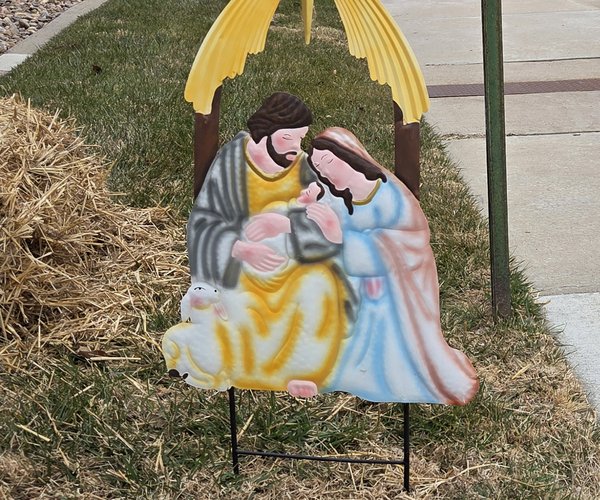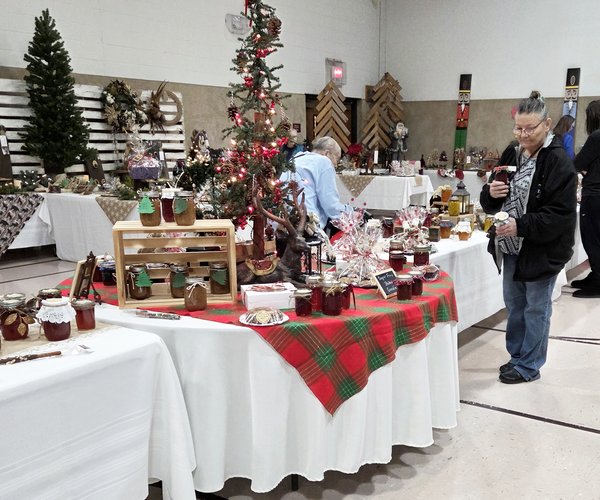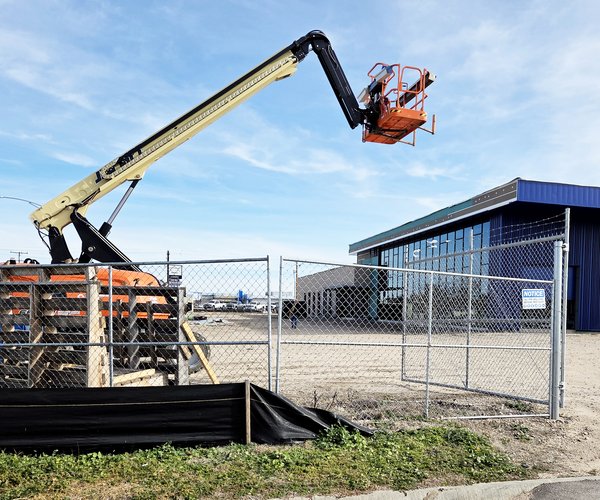

BY KEITH LIPPOLDT
klippoldt@gbtribune.com
Longtime Stafford County farmers and producers Leon and Jan Dunn have made agriculture their lives. They’ve done it well enough that they were inducted into the American Gelbvieh Association (AGA) Hall of Fame. The couple was presented the award on Dec. 5 in Kansas City, Mo.
The award was earned due to the couple’s dedication to the Gelbvieh breed and their contributions to the cattle industry over the past several decades.
But the couple, who met while attending school at Kansas State University and married in 1965, actually stumbled onto the Gelbvieh (pronounced Gel-fee) breed.
“I had a long-time friend that I met showing livestock when we were juniors in high school,” Leon said.” We both went to Kansas State University and were fraternity brothers and we were both on the Kansas State Livestock Judging Team.
He went on to be a county agent in West Point, Nebraska. He was really interested in livestock, and so he would source some cattle for his 4-Hers in Nebraska. He came across some red cattle In Wyoming, and he thought they were Red Angus. They had really good temperament. They grew fast and had good carcasses. And so when he got to trace back on them, it turned out they were Gelbvieh,”
In the meantime, Jan’s father, a veterinarian, was able to get in on the ground floor of some continental breeds that came to the United States. So, the Dunns started trying to cross what few cows they had with this continental breed.
“We really liked the cattle,” Leon recalled. “They were big, and the only thing we didn’t like was their temperament. We would get them in to work them and they liked to jump the fence. We got tired of watching their tail ends going over the fence.
“So my friend said, ‘why don’t you take a look at Gelbvieh cattle?’ He found (son) Brian a Gelbvieh heifer for a 4-H project. We liked what we saw, and that’s just kind of how we got started.”
Owners of Sandy Knoll Farm in Stafford County, the operation is totally a family affair. Jan is in charge of the financial records for all the entities. Their son, Brian, takes care of the cattle and raises alfalfa hay as well as the other crops. Son-in-law Scott Pfortmiller manages the Swine operation. Leon explained, “We are what they call a ‘multiplier’ for a major breeding company. What that means is we raise females to send them on downstream, to be placed in other herds for them to use as their breeding stock.”
Leon’s role is to run the irrigation, do some of the farming and “look over their shoulders to see what they are doing.”
Daughter Jennifer is employed by Kansas State through Barton Community College. Her role is to recruit students to Barton and steer them, and other community college students, to KSU.
Daughter-in -law Carolyn Pfortmiller has been deeply involved in economic development in Stafford County for several years.
Grandsons Preston, Ian and Garrett Dunn also have Gelbvieh cattle herds they are responsible for.
The majority of the crops they raise is used as feed for the cattle and the pigs. Leon said “We tried to raise all our own corn for our pit. Because we’re in a high health situation with our pigs, we do not want to buy or bring anything in here that might run the risk of bringing in a disease.”
You don’t become Hall Of Famers by being average and Sandy Knoll takes great pride in the quality control in place from start to finish. Also, they rely on years and years of data to improve their product.
“We’ve done a lot of carcass data. We have a lot of data on our cattle,” Leon said. “We do ultrasound to get pictures of how much marbling they have in their ribeye, how much fat they have. We do DNA testing. We do genetic testing and we have that information on every cow in our herd. We’re trying really hard to develop cattle that can move and cattle that have the genetics to reproduce - cattle that are beneficial to the meat industry.”
As charter members of the Kansas Gelbvieh Association, Leon served as president while Jan served as secretary/treasurer. They are also credited with starting the Kansas Junior Gelbvieh Association in 1986 to give young people the opportunity to explore the Gelbvieh breed.
The Dunns will be the first to tell you they wouldn’t be in this position, and wouldn’t have been inducted into the AGA Hall of Fame, without the help of others they’ve met and worked with along the way.
“It is quite an honor, but I can tell you that there have been a lot of people that are in the Hall of Fame, and several of those people have really mentored us and helped us with advice and securing some really good cattle to help move us down the road that we want to travel.”
And just as those people did for them, the Dunns want to give back to others and offer advice for the young farmers and producers.
“The technology developments in agriculture are moving so fast,” he said. “I think the key to their success is don’t be afraid of technology. Adopt it, try it. There’s some things that you’re going to fail at. I compare it to playing baseball. You’d like to hit a home run every time you bat, but you know you can’t do that. And the same principle applies to breeding livestock. You’d like to have a bell-ringer every calf that’s born. You know that’s not going to happen. You just gotta keep trying and don’t give up.”





